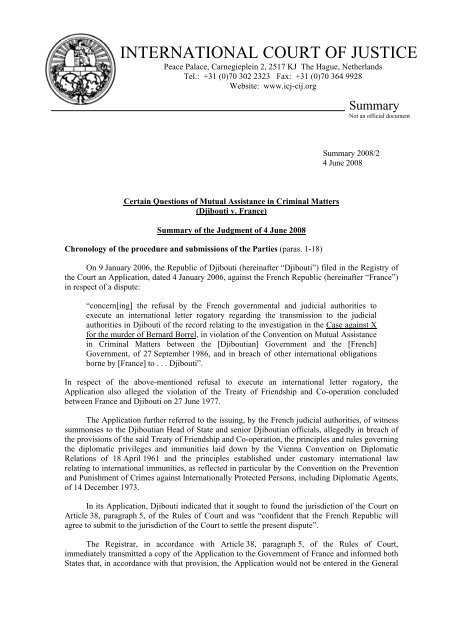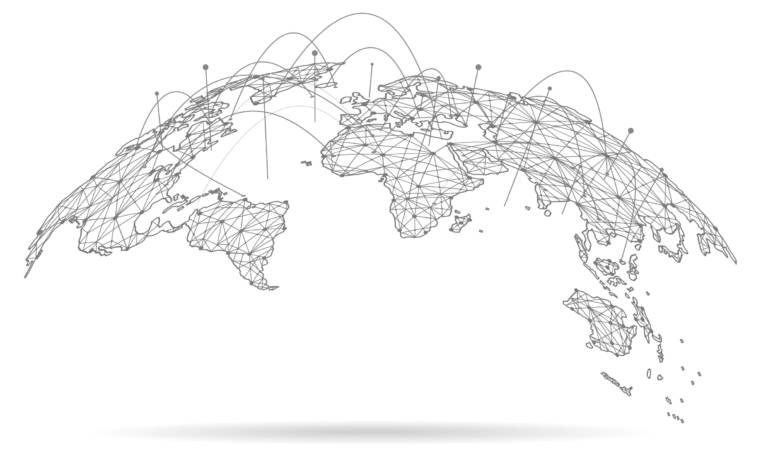Letters Rogatory vs. Mutual Legal Help Treaties: Key Differences Explained
Letters Rogatory vs. Mutual Legal Help Treaties: Key Differences Explained
Blog Article
The Duty of Letters Rogatory in International Legislation: Secret Insights
Letters rogatory serve as a crucial instrument in international legislation, promoting cross-border legal assistance by allowing jurisdictions to officially request evidence and actions from one another. What ramifications might these challenges have for future lawful proceedings?
Meaning of Letters Rogatory
In the realm of worldwide legislation, letters rogatory offer as official demands issued by a court in one territory to seek aid from a court in an additional jurisdiction. Letters rogatory. These requests are especially substantial in cross-border lawful process, where the enforcement of a court's order or the event of proof might be impeded as a result of jurisdictional constraints

The procedure generally calls for the requesting court to verbalize the certain details or activity needed from the international court, sticking to the legal protocols and conventions developed between the jurisdictions included. Once released, the letters rogatory are transferred through diplomatic channels, which may consist of consular offices or embassies, to guarantee that the demand is identified and acted upon by the foreign court. Generally, letters rogatory exhibit the cooperative structure vital for effective international lawful procedures.
Historical Context
Although the technique of letters rogatory has old origins, its formalization within the structure of international law arised considerably in the 20th century. Historically, such ask for judicial help were made use of in different lawful practices, including Roman law, where they assisted in cross-border cooperation in lawful issues. The concept got renewed focus with the surge of globalization and the increasing complexity of international legal interactions.
The mid-20th century saw the facility of treaties and conventions that sought to standardize the procedure of letters rogatory. Significantly, the 1970 Hague Convention on the Taking of Evidence Abroad in Civil or Business Matters provided a structured technique, enhancing the efficiency of these demands - Letters rogatory. This duration marked a change from informal plans to an extra organized structure, which resolved the challenges positioned by varying national lawful systems
As states ended up being extra synergistic, the need for efficient systems to gather evidence throughout boundaries emerged, reinforcing the duty of letters rogatory in promoting worldwide participation. Today, they continue to be a crucial tool for acquiring proof and making sure that justice transcends nationwide borders, showing the advancing nature of worldwide regulation in feedback to global challenges.
Refine of Issuing Demands
The procedure of releasing letters rogatory generally includes numerous vital actions developed to make sure that requests for judicial assistance are clear, particular, and certified with both global and residential lawful criteria. A party looking for help needs to prepare a formal demand that details the relevant realities of the case, the relief looked for, and the certain evidence or statement required. This paper must be crafted with accuracy to satisfy the lawful demands of the jurisdiction in which it will certainly be sent.
Complying with the preparation of the request, it is sent to the proper authority, often a court or a designated governmental firm. This authority assesses the demand to ensure it adheres to legal criteria and step-by-step norms. As soon as accepted, the request is sent to the international jurisdiction with diplomatic networks.
Upon invoice, the international court examines the demand's conformity with its local laws and methods (Letters rogatory). If accepted, it proceeds to execute the request, which may involve the issuance of subpoenas Home Page or the collection of proof. Throughout this procedure, maintaining clear interaction in between the asking for and receiving jurisdictions is crucial to ensure effective participation and the gratification of the request
Challenges and Limitations
Constraints and challenges often arise in the process of performing letters rogatory, usually stemming from varying legal systems and procedures between jurisdictions. One significant obstacle is the varying criteria of admissibility for evidence, which can bring about difficulties in the acceptance of paperwork asked for via letters rogatory. In addition, the lack of uniformity in legal terminology and definitions can develop misconceptions, making complex interaction in between courts in different countries.
In addition, hold-ups prevail due to administrative procedures, as the demand may need to go through multiple layers of legal authorities prior to it is met. In some circumstances, the asked for jurisdiction may do not have the required sources or determination to cooperate, even more preventing the procedure. Language barriers also add to obstacles, as precise translation of legal files is crucial for making sure that the desired message is conveyed without distortion.
Last but not least, sovereignty issues might arise, as some states hesitate to conform with requests that they view as infringing upon their lawful freedom. These challenges highlight the intricacies inherent in using letters rogatory, necessitating greater harmonization and teamwork amongst international legal systems to enhance their performance.

Influence on International Collaboration
Recognizing the importance of letters rogatory in promoting international collaboration is crucial, as these demands assist in cross-border lawful assistance and advertise collaborative efforts in civil and criminal matters. By making it possible for one territory to formally request support from one more, letters rogatory create an organized legal structure that improves the performance of global communication between judicial authorities.
The usage of letters rogatory helps to develop common count on and respect among countries, which is essential in an increasingly interconnected globe. They work as a device not only for gathering evidence however likewise for making sure that lawful processes are maintained throughout borders. This is specifically vital in combating multinational crime, where the inability to safeguard teamwork can weaken justice.
Moreover, the reliance on letters rogatory can streamline intricate lawful proceedings, reducing delays and uncertainties in global examinations. The step-by-step safeguards inherent in this procedure add to the defense of individual legal rights while assisting in teamwork among states. Ultimately, the effect of letters rogatory on international teamwork emphasizes their role as essential tools in the promo of justice, cultivating a collaborative spirit that transcends legal systems and national boundaries.
Final Thought
In verdict, letters rogatory act as an essential tool in worldwide law, facilitating cross-border legal aid and participation. Regardless of fundamental challenges such as varying legal standards and administrative delays, their standard procedures advertise trust among countries. The ongoing advancement of these mechanisms is crucial for improving the effectiveness of international legal processes, ultimately promoting more powerful collaboration in both criminal and civil matters throughout jurisdictions. click The relevance of clear interaction in this context can not be overstated.
Letters rogatory offer as a critical tool visit in global law, promoting cross-border legal support by permitting territories to officially request proof and actions from one another.The process normally calls for the asking for court to express the specific details or activity needed from the foreign court, sticking to the legal methods and conventions developed between the jurisdictions involved. Historically, such demands for judicial assistance were made use of in numerous lawful traditions, consisting of Roman regulation, where they assisted in cross-border collaboration in lawful issues.The process of providing letters rogatory commonly includes numerous important steps made to ensure that requests for judicial aid are clear, particular, and certified with both international and domestic legal requirements.Additionally, hold-ups are common due to administrative processes, as the demand may need to pass with multiple layers of lawful authorities prior to it is satisfied.
Report this page